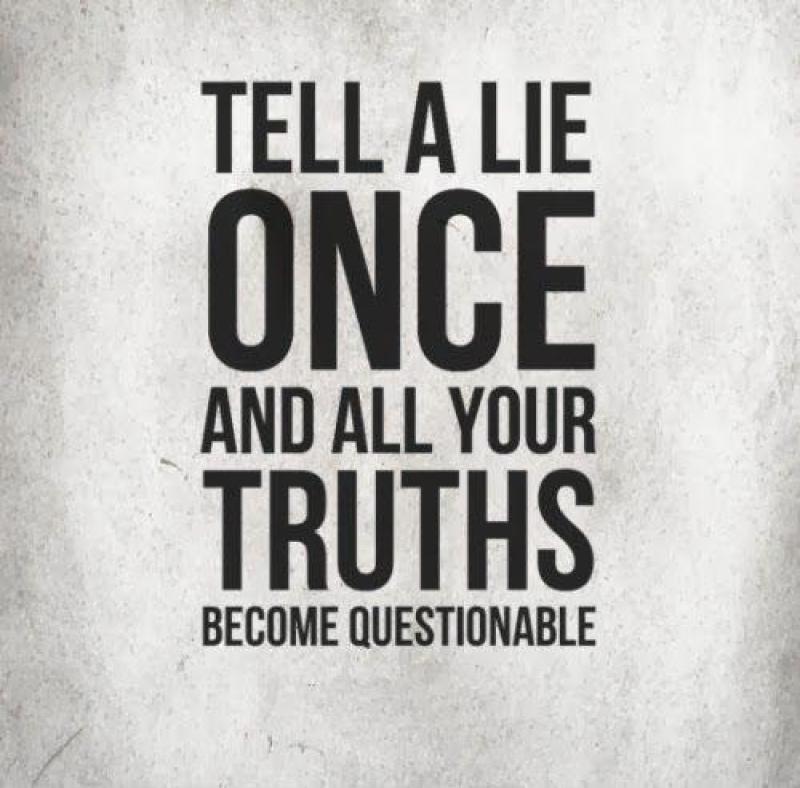Why Trump Supporters Don’t Mind His Lies


Mr. Effron is an associate professor of organizational behavior at London Business School.
In his first 400 days in office, President Trump made more than 2,400 false or misleading claims, according to The Washington Post. Yet a recent Gallup poll shows his approval ratings among Republicans at 82 percent. How do we square these two facts?
Some supporters no doubt believe many of the falsehoods. Others may recognize the claims as falsehoods but tolerate them as a side effect of an off-the-cuff rhetorical style they admire. Or perhaps they have become desensitized to the dishonesty by the sheer volume of it.
I suspect that there is an additional, underappreciated explanation for why Mr. Trump’s falsehoods have not generated more outrage among his supporters. Wittingly or not, Mr. Trump’s representatives have used a subtle psychological strategy to defend his falsehoods: They encourage people to reflect on how the falsehoods could have been true.
New research of mine suggests that this strategy can convince supporters that it’s not all that unethical for a political leader to tell a falsehood — even though the supporters are fully aware the claim is false.
Consider some examples. When President Trump retweeted a video falsely purporting to show a Muslim migrant committing assault, Sarah Huckabee Sanders, the White House press secretary, defended him by saying, “Whether it’s a real video, the threat is real.”
On another occasion, Ms. Sanders admitted that Mr. Trump had made up a story about how Japan drops bowling balls on American cars to test their safety, but she argued that the story still “illustrates the creative ways some countries are able to keep American goods out of their markets.” When asked about the false claim that Mr. Trump’s inauguration had drawn the biggest inaugural crowd in history, Kellyanne Conway, counselor to the president, suggested that inclement weather had kept people away.
Subscribe to The Times
In each instance, rather than insisting the falsehood was true, Ms. Sanders and Ms. Conway implied it could have been true. Logically speaking, the claim that more people could have attended the president’s inauguration in nicer weather does not make the crowd any bigger. But psychologically, it may make the falsehood seem closer to the truth and thus less unethical to tell.
To find out if this strategy actually helps get politicians off the hook for dishonesty, I recently conducted a series of experiments. I asked 2,783 Americans from across the political spectrum to read a series of claims that they were told (correctly) were false. Some claims, like the falsehood about the inauguration crowd, appealed to Mr. Trump’s supporters, and some appealed to his opponents: for instance, a false report (which circulated widely on the internet) that Mr. Trump had removed a bust of the Rev. Dr. Martin Luther King Jr. from the Oval Office.
All the participants were asked to rate how unethical it was to tell the falsehoods. But half the participants were first invited to imagine how the falsehood could have been true if circumstances had been different. For example, they were asked to consider whether the inauguration would have been bigger if the weather had been nicer, or whether Mr. Trump would have removed the bust if he could have gotten away with it.
The results of the experiments, published recently in Personality and Social Psychology Bulletin, show that reflecting on how a falsehood could have been true did cause people to rate it as less unethical to tell — but only when the falsehoods seemed to confirm their political views. Trump supporters and opponents both showed this effect.
Again, the problem wasn’t that people confused fact and fiction; virtually everyone recognized the claims as false. But when a falsehood resonated with people’s politics, asking them to imagine counterfactual situations in which it could have been true softened their moral judgments. A little imagination can apparently make a lie feel “truthy” enough to give the liar a bit of a pass.
These results reveal a subtle hypocrisy in how we maintain our political views. We use different standards of honesty to judge falsehoods we find politically appealing versus unappealing. When judging a falsehood that maligns a favored politician, we ask, “Was it true?” and then condemn it if the answer is no.
In contrast, when judging a falsehood that makes a favored politician look good, we are willing to ask, “Could it have been true?” and then weaken our condemnation if we can imagine the answer is yes. By using a lower ethical standard for lies we like, we leave ourselves vulnerable to influence by pundits and spin doctors.
In this time of “fake news” and “alternative facts,” commentators worry that people with different political orientations base their judgments of right and wrong on entirely different perceptions of reality. My research suggests an additional concern: Even when partisans agree on the facts, they can come to different moral conclusions about the dishonesty of deviating from those facts. The result is more disagreement in an already politically polarized world.
Blame the human ability to imagine what might have been.
 Article is LOCKED by author/seeder
Article is LOCKED by author/seeder



Hence why I DIDN'T vote for Clinton. 40 years of lies and deceit. That's a lot to forget.
I also find it funny that everybody is up in arms about President Trump doing something every politician does. They have no problem overlooking everybody's lies except this particular one.
Most Trump SUPPORTERS must , at this point, be in the greatest state of denial in human history. We can absolutely know this because they say things like "everybody is up in arms about President Trump doing something every politician does. "
How someone can say that with a straight face is a BIG mystery. Denial.
This is also why we can't depend on trumpsters coming to their senses. It ain't gonna happen. This is a fight to the finish, and we must as a nation put an end to the plague of trumpism.
Kellyanne Conway once invented a "Bowling Green Massacre" (terrorist attack in Bowling Green Ky.) in her own mind and then actually went on a tv show acting as if it were true.
These people are shameless.
Don't forget her "alternative facts"
I'm curious why Democrats supported a candidate who was described as a congenital liar in the New York Times 25 years ago and who doubled down on that reputation since?
It's amusing seeing Clinton supporters wonder how anyone could support a candidate who lies. Are they that lacking in self awareness?
Sean, if you think Hillary lies anywhere in the same universe as the rate Trump lies, you must have fell and hit your head somewhere and lost your sensibilities. It is ridiculous.
Hillary is a premeditated liar, trump is a spontaneous one. That’s the only difference.
Trump is both, and a thousand other forms of liar. You have lost all credibility Sean.
Or, as it more commonly known, the Dan Rather defense.
Forged documents are okay to base a story on, if you just believe they are true!